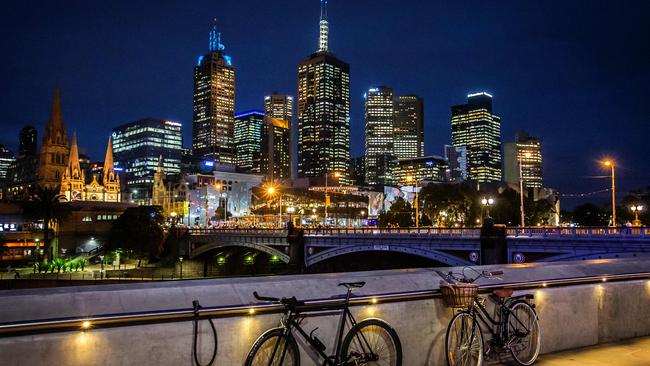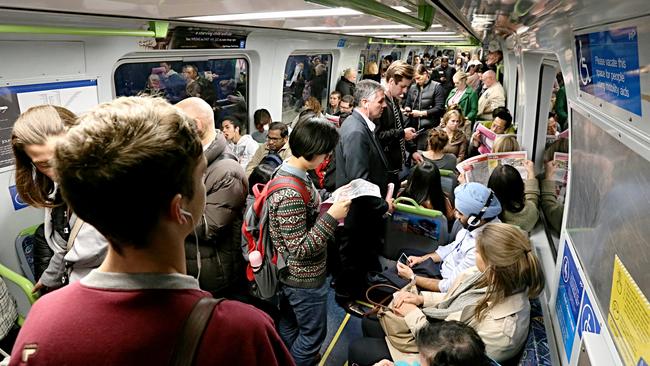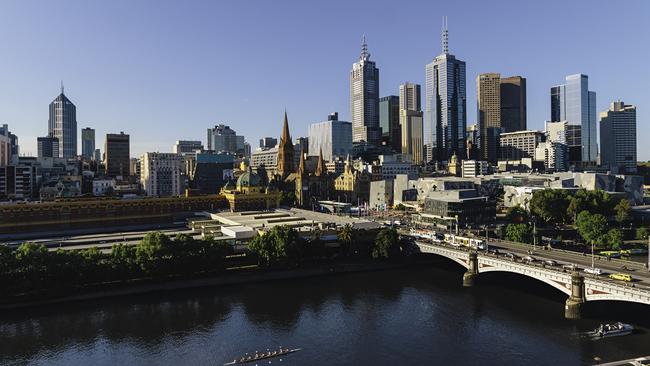Melbourne set to lose status as world’s most liveable city, experts warn
MELBOURNE is set to lose its status as the world’s most liveable city, experts have warned, with calls to improve lagging transport and struggling healthcare.

VIC News
Don't miss out on the headlines from VIC News. Followed categories will be added to My News.
MELBOURNE is set to lose its status as the world’s most liveable city, experts have warned.
Planning experts and city leaders have blamed lagging transport, dogbox apartments and struggling healthcare for jeopardising the city’s international rating.
Melbourne has topped a list of the most liveable cities for the past five years - but is predicted to lose the crown to a European capital when the 2016 rankings are released next week.
RMIT planning professor Michael Buxton said “Melbourne’s livability for its citizens is plummeting”.
He said the state government had been blinded by the title and overlooked issues with surging population, transport and infrastructure.
“It can give a false sense of how Melbourne is really functioning and it can leave decision makers thinking everything is going quite well,” Prof Buxton said.
“There has been a lot of talk that Melbourne’s rating has been exaggerated, particularly during the last few years.

“We have to get our focus on the real game, which is improving the way the city works.”
The Economist’s Global Liveability Ranking rates a city’s stability, culture and environment, healthcare, education and infrastructure.
Melbourne scored 97.5 out of 100 last year - with perfect marks in the final three categories.
Prof Buxton said the ranking was targeted at middle to high-income international workers and visitors, rather than the average Melburnian.
He said while the city’s extensive train network looked impressive on paper, it performed “very badly” on an international scale.
Metro recorded 91.4 per cent punctuality last month - although it considers trains “on time” if they are less than five minutes late.
Faults and union strikes also brought the network to a standstill a number of times during the past year, leaving thousands of passengers stranded on platforms.
Unprecedented road congestion is also crippling traffic with the afternoon peak now lasting three and a quarter hours.
Prof Buxton also called for a ban on high-rise apartments in favour of European-style medium density houses in large developments near the city, like Fishermends Bend.
It comes as the State Government considers minimum-size guidelines for new apartments to stop shoebox units, some no bigger than two car parks.
Planning Minister Richard Wynne said: “the most liveable city tag can never be taken for granted”.

“We need another 45,000 dwellings around the inner city alone by 2031 and have approved more than $8 billion worth of inner-city development in the past 18 months.
“Unfettered high-rise development leads to dark, windy streets and dog box apartments, which is why we toughened up planning rules to boost development quality.”
Australian Population Research Institute president Dr Bob Birrell slammed the rating for lacking relevance for the average Melburnian, saying“the whole exercise is plainly ridiculous”.
“The metric used in the Economist has very little to do with what most people would think is a measure of a liveable city,” he said.
“It ignores crucial questions like cost of living, congestion and overcrowding.
“It’s ludicrous to regard Melbourne as the world’s most liveable city when the next generation cannot afford to buy a detached house and are forced to find accommodation in tiny apartments or remote suburbia.
“It’s perpetuating a myth.”
The Salvation Army’s Major Brendan Nottle said domestic violence, homelessness and mental health issues had reached “crisis” point.
He said many homeless people would be angered if Melbourne was again named the world’s most liveable city.
“They would look at their situation and say it’s simply not true,” Major Nottle said.
“If we look at people dealing with serious mental health issues, they go to a public hospital to get support and often get turned away because resources are really stretched.
“What determines whether a city is the world’s most liveable is surely has to be if anyone gets left behind.
“Is there a fair go and opportunity for all?”
@moniquehore


